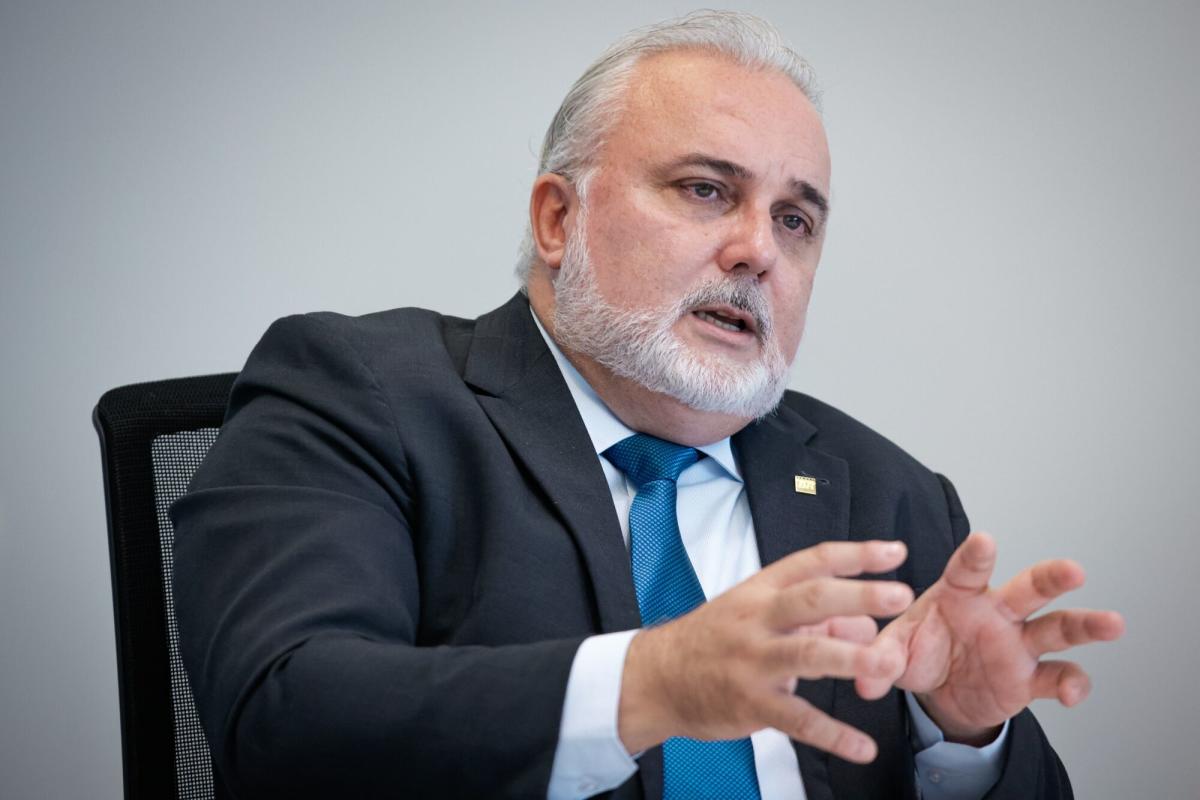
(Bloomberg) — Brazilian President Luiz Inacio Lula da Silva has shaken up the leadership of the country’s state-owned oil company, firing the CEO and one of his top deputies after months of sparring.
Most read from Bloomberg
Petroleo Brasileiro SA CEO Jean-Paul Prats, who quarreled with the president over dividends, was formally sacked at a board meeting on Wednesday. The company’s chief financial officer, Sergio Caetano Leite, was also fired.
Lula, as the president is called, intends to nominate Magda Chamberillard, the former head of Brazil’s oil and gas regulatory body, to replace Prats. Petrobras said Clarice Copetti, chief corporate affairs officer, will serve as interim CEO.
Reactions in the markets were swift and negative as investors prepared for a new CEO who analysts warn may be more willing than her predecessor to put the president’s priorities above those of shareholders.
Petrobras’ preferred shares fell as much as 8.3% in Sao Paulo, the biggest intraday drop since March 8, when the announcement of a lower-than-expected dividend disappointed markets and led to a widespread wave out of Brazilian assets.
“The sudden change in management adds a significant amount of uncertainty,” Regis Cardoso, an analyst at XP Investimentos, wrote in a note to clients.
SEE ALSO: Petrobras’s next CEO is an oil veteran who supports exploration
Prats’ departure ends months of speculation that his days at Petrobras were numbered. Tensions escalated earlier this year when he refused to join government-appointed board members who voted to withhold the distribution of extraordinary dividends to shareholders accustomed to fixed returns.
Employees applauded Prats on Wednesday afternoon in Rio de Janeiro as he left the company’s downtown headquarters.
“I’m sad, that’s all,” he said, while also defending his track record on fuel pricing and investments. “The company’s future is on the right track with the energy transition, and good projects in the portfolio should be analysed.”
The expulsion may add to concerns that Petrobras is under increasing pressure from the ruling Workers’ Party to help revive Brazilian industry and create jobs, at the expense of shareholders. The dividends shocked some investors who saw them as a sign of growing political interference in Latin America’s largest oil-producing country.
After weeks of debate, Petrobras eventually agreed to return half of its available cash to investors through a special dividend, as Prats’ executive board had initially proposed. The government is the largest shareholder, and dividends have helped support the fiscal deficit at a time of rising spending.
Prats told the Executive Board before the official announcement that Lula had requested his position restored. In a letter seen by Bloomberg, he said his mission “ended prematurely,” and blamed Alexandre Silveira, the energy and mines minister, and Rui Costa, Lula’s chief of staff, with whom he had fallen out.
Prats, a former senator for Lula’s leftist party with a history of working in the oil industry, became CEO in January 2023, shortly after Lula resumed the presidency. Petrobras had fired six CEOs, including interim chiefs, from 2019 until Prats’ appointment.
Under his leadership, Petrobras changed direction, halting asset sales, protecting consumers from sharp fluctuations in global oil prices, and allocating billions of dollars to energy transformation investments. The company recently boosted its five-year business plan budget to $102 billion, its largest spending plan since 2015.
Petrobras said it received notification from the Energy Ministry late on Tuesday confirming that it would propose Chamberillard to replace Prats.
The engineer began her career at Petrobras in 1980, where she worked for the company for 22 years, before moving to the Brazilian oil regulator Agência Nacional de Petróleo, Gás Natural e Biocombustíveis, known as ANP. She was appointed head of the agency by former Brazilian President Dilma Rousseff in 2012 and held the position until 2016.
Like Prats, Chambrillard was part of Lula’s energy transition team in 2022. At the time, she had already been identified as a potential candidate for the top job at Petrobras. The former head of the Brazilian National Police defended Brazil’s need to explore for oil in new areas, including the Equatorial Margin and the Pelotas Basin.
The pre-salt boom is over. “It is time to look for new frontiers, so that Brazil can continue to produce oil.”
Chambrillard also supports more investment in domestic oil refining, and wants to see more goods manufactured in Brazil rather than exported as raw materials.
Citigroup said in a note that Ratz’s ouster represents a deterioration in Petrobras’ management, and that Chamboriard’s task will not be easy. It said it “arrives under pressure to implement the investment plan and accelerate the expansion of Petrobras’ capital expenditures” and this could lead to lower dividend payments.
–With assistance from Rachel Jamarski, Peter Millard, and Lida Alvim.
(Updates to include CFO departure in second paragraph)
Most read from Bloomberg Businessweek
©2024 Bloomberg L.P

“Web maven. Infuriatingly humble beer geek. Bacon fanatic. Typical creator. Music expert.”





More Stories
Dow Jones Futures: Microsoft, MetaEngs Outperform; Robinhood Dives, Cryptocurrency Plays Slip
Strategist explains why investors should buy Mag 7 ‘now’
Everyone gave Reddit an upvote